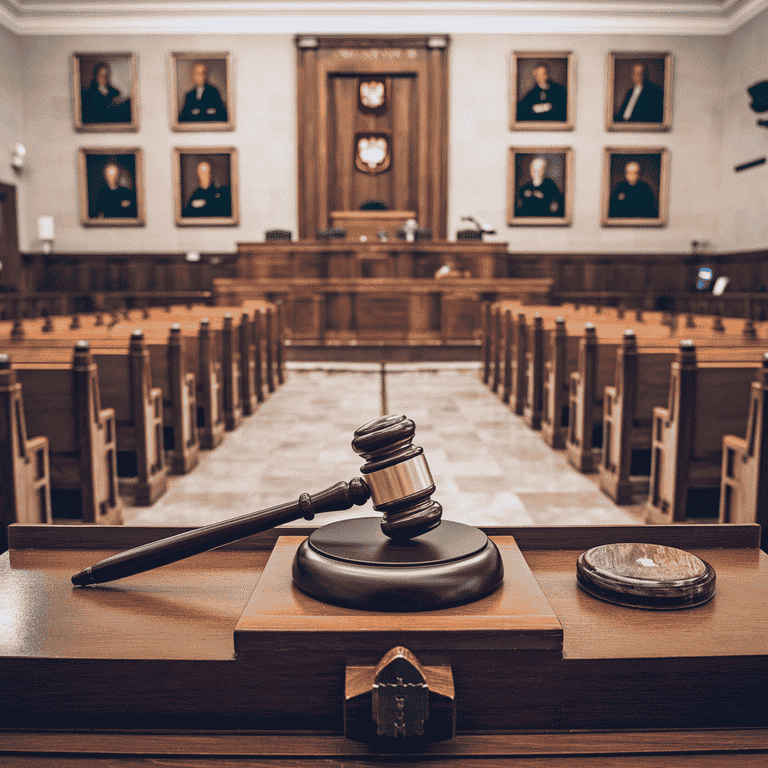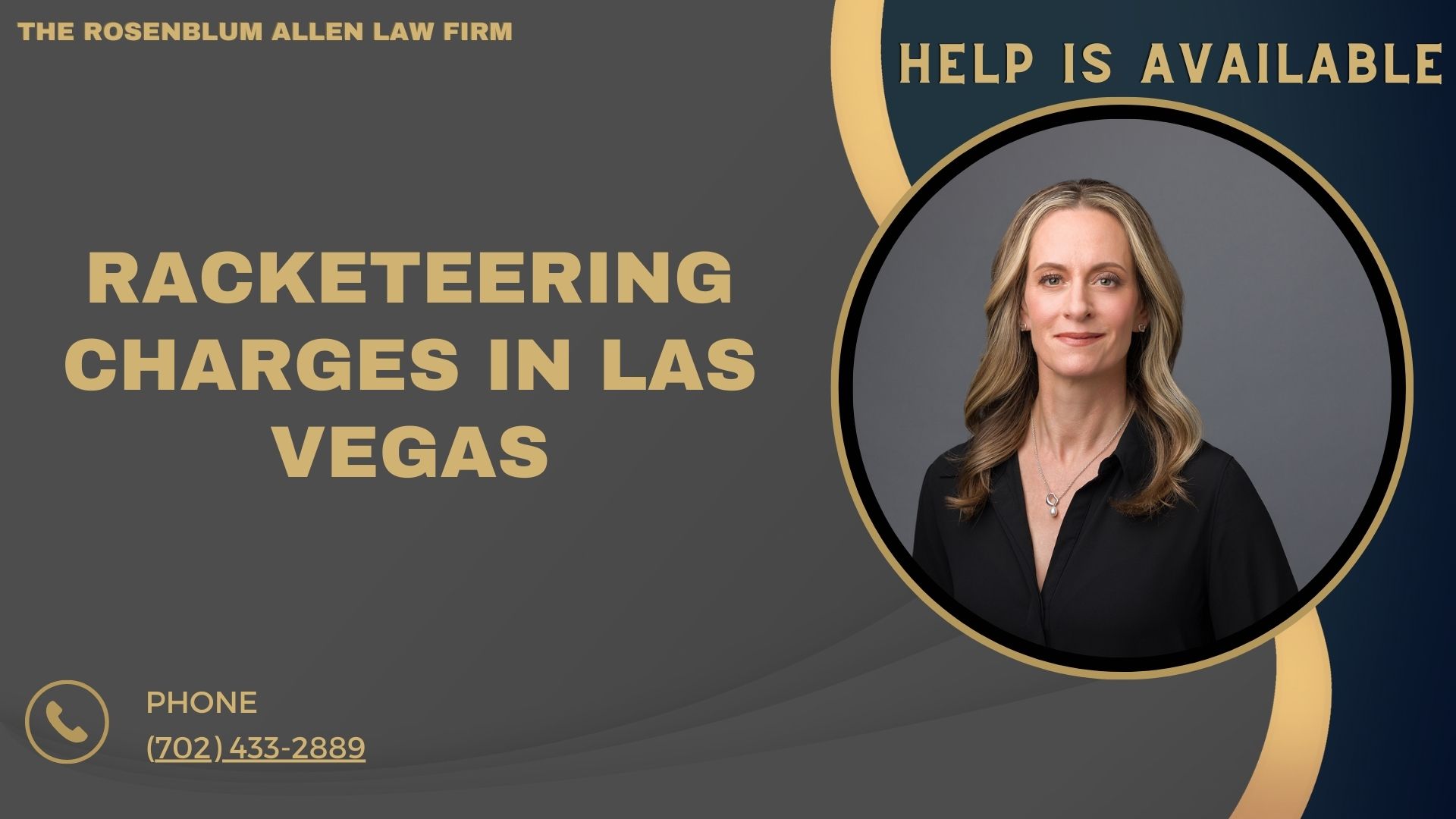What Are Racketeering Charges?
Definition of Racketeering
Racketeering involves engaging in illegal activities as part of a coordinated effort. The U.S. government defines it under the Racketeer Influenced and Corrupt Organizations (RICO) Act. Here are some examples of racketeering activities:- Extortion
- Bribery
- Embezzlement
- Fraud
- Drug trafficking
Historical Background of Racketeering Laws
Racketeering laws were created to tackle organized crime. In 1970, Congress passed the RICO Act. Its goal was to disrupt groups like the Mafia, which were evading prosecution by hiding behind layers of intermediaries. The RICO Act allowed authorities to charge individuals for crimes they committed as part of a more extensive criminal operation. Over time, it has been applied to other contexts, including corporate crimes and political corruption.Common Types of Racketeering Offenses
Organized Crime and Racketeering
Organized crime groups are often at the center of racketeering cases. These groups coordinate illegal activities to generate profit and maintain power. Some examples include:- Gambling rings
- Human trafficking networks
- Drug cartels
Corporate and White-Collar Racketeering
Racketeering isn’t limited to street-level crime. It can happen within corporations. White-collar racketeering often involves financial fraud, such as:- Securities fraud
- Tax evasion
- Money laundering
Cyber Racketeering
With the rise of technology, cyber racketeering is becoming more common. Criminals exploit the internet for coordinated illegal activities. Examples of cyber racketeering include:- Ransomware attacks, where hackers demand payment to restore encrypted data.
- Online extortion schemes targeting businesses and individuals.

How Racketeering Charges Are Prosecuted
Federal vs. State Jurisdiction
Racketeering cases can be prosecuted at both federal and state levels. The location of the case depends on the nature of the crimes and the laws involved. Federal Jurisdiction:- Federal racketeering charges fall under the RICO Act.
- These cases usually involve large-scale operations like organized crime syndicates or crimes crossing state lines.
- The penalties are severe, including lengthy prison sentences and significant fines.
- States have their racketeering laws modeled after RICO.
- These laws allow states to target local enterprises, such as more minor organized crime rings or corrupt businesses operating within a single state.
Penalties for Racketeering
Racketeering convictions come with harsh penalties. These aim to disrupt criminal organizations and deter future crimes. Here’s what someone convicted of racketeering might face:- Prison Time: Sentences often range from 20 years to life, depending on the severity of the crimes.
- Fines: Convicted individuals or organizations can face fines of up to $250,000 or twice the amount of money gained from the illegal activities.
- Asset Forfeiture: Authorities may seize property or assets gained through racketeering, such as cars, homes, or bank accounts.

Defending Against Racketeering Charges
Common Legal Defenses
Facing racketeering charges can feel overwhelming. But defendants have options. Here are some standard legal defenses:- Lack of Evidence:
- Prosecutors must prove every element beyond a reasonable doubt.
- A defense attorney can challenge weak or circumstantial evidence.
- No Involvement in an Enterprise:
- The prosecution must connect the defendant to an organized group.
- If the connection is unclear or unproven, the case may collapse.
- No Pattern of Activity:
- The charges might not qualify as racketeering if the alleged crimes are isolated events rather than part of a pattern.
- Entrapment:
- This defense argues that law enforcement officers induced the defendant to commit crimes they otherwise would not have.
Importance of Legal Representation
Racketeering cases are complex. They involve detailed evidence, multiple charges, and high stakes. An experienced attorney plays a critical role in building a solid defense. They may:- Analyze the prosecution’s evidence for weaknesses.
- Negotiate plea deals to reduce charges.
- Present alternative explanations for the alleged activities.

Breaking It All Down
Facing racketeering charges can feel like a nightmare. The consequences can include lengthy prison terms, steep fines, and damage to personal and professional life.
Don’t navigate this alone if you or someone you care about is facing these charges. A qualified attorney can explain your rights, guide you through the legal system, and fight for the best possible outcome.
Racketeering cases are complex, but with the proper defense, there is hope.

Frequently Asked Questions
What does the term “enterprise” mean in racketeering cases?
An “enterprise” refers to any group or organization engaged in illegal activities. This can include formal entities like corporations, informal groups like gangs, or even a loosely connected network of individuals working toward a common criminal goal.
Can someone be charged with racketeering without committing a crime themselves?
Yes, someone can face racketeering charges if they are found to have directed, facilitated, or benefited from the illegal activities of the enterprise. For example, a leader who orders crimes but doesn’t directly commit them can still be charged.
Are all racketeering cases related to organized crime?
No, while racketeering laws were originally designed to combat organized crime, they now apply to a wide range of cases. These include white-collar crimes, corrupt corporate practices, and even cyber-related offenses.
How long do racketeering cases typically take to resolve?
These cases can take months or even years. They often involve extensive investigations, large amounts of evidence, and complex legal arguments.
Can a racketeering conviction be appealed?
Yes, like any criminal conviction, racketeering convictions can be appealed. Grounds for appeal may include procedural errors, insufficient evidence, or improper jury instructions during the trial.
What role does intent play in racketeering charges?
Intent is critical. Prosecutors must show that the accused knowingly participated in the illegal activities of the enterprise. Without intent, the case may not stand.
Can a business face racketeering charges?
Yes, businesses can be charged if they are found to have engaged in or facilitated racketeering activities. Penalties for companies may include fines, asset seizures, and operational restrictions.
Are there civil penalties for racketeering?
Yes, the RICO Act allows for civil lawsuits against individuals or entities involved in racketeering. Victims can seek monetary damages, often tripled in value under the law, to compensate for their losses.
What happens to seized assets in racketeering cases?
Seized assets, such as money, property, or valuables obtained through illegal activities, are typically forfeited to the government. These assets may be used to compensate victims or fund law enforcement efforts.
How has technology changed racketeering investigations?
Technology has made it easier for authorities to track communications, financial transactions, and digital evidence. However, it has also given criminals new tools to hide their activities, such as encrypted messaging apps and cryptocurrency.

Glossary
Racketeering: The act of engaging in a pattern of illegal activities as part of an organized group or enterprise.
RICO Act: The Racketeer Influenced and Corrupt Organizations Act, a federal law enacted in 1970 to combat organized crime by targeting individuals and organizations engaged in ongoing criminal enterprises.
Enterprise: Any group, organization, or network, formal or informal, involved in conducting illegal activities. This can include corporations, partnerships, or even loosely associated individuals.
Pattern of Racketeering Activity: A requirement under the RICO Act that involves at least two related criminal acts committed within a ten-year period as part of an enterprise.
Organized Crime: Criminal activities carried out by structured groups, often involving multiple individuals working together to achieve illegal goals, such as extortion, smuggling, or trafficking.
White-Collar Racketeering: Non-violent crimes committed for financial gain, often involving fraud, money laundering, or tax evasion within corporate or professional settings.
Cyber Racketeering: The use of digital technologies to conduct illegal activities such as ransomware attacks, online extortion, or cyber fraud.
Asset Forfeiture: The legal process by which the government seizes property or assets obtained through criminal activities.
Federal Jurisdiction: Cases prosecuted under U.S. federal law, often involving crimes that cross state lines or impact national interests.
State Jurisdiction: Cases handled under individual state laws, usually involving crimes contained within state borders.
Entrapment: A legal defense arguing that law enforcement induced someone to commit a crime they otherwise would not have committed.
Civil Racketeering: Non-criminal cases under the RICO Act where victims seek monetary compensation from individuals or entities involved in racketeering.
Intent: The mental state of knowingly and willingly participating in criminal activities, which is a key element in proving guilt in racketeering cases.
Seized Assets: Property or money taken by law enforcement because it was acquired through illegal activities.
Cybercrime: Crimes conducted through digital means, often involving hacking, online fraud, or data theft.

Additional Resources for You
Molly Rosenblum, Esq., our esteemed lead attorney, understands the gravity and complexity of facing criminal charges. To empower you during these challenging times, she has meticulously developed a comprehensive range of resources. Each one offers in-depth insights and guidance tailored to specific charges, ensuring you have the knowledge to navigate your legal journey confidently. Here’s a detailed list of the resources crafted by Molly Rosenblum, Esq.:
Theft Crime Defense Lawyer: A dedicated resource for those accused of theft, providing effective defense strategies and legal insights. Explore the resource.
White Collar Crime: Navigate the complex world of white-collar crime charges with detailed information and defense tactics. Learn more.
Fraud Charges: Gain insights into various aspects of fraud charges and discover effective defense strategies. Discover more.
Embezzlement Charges: Equip yourself with crucial information on embezzlement charges and learn how to protect your rights. Find out more.
Identity Theft Charges: Understand the serious nature of identity theft charges and explore your options for defense. Explore your options.
Larceny Charges: Delve into the specifics of larceny charges and get effective advice on navigating these accusations. Learn the specifics.
Credit Card Fraud Charges: Uncover the complexities of credit card fraud charges and learn how to effectively confront these allegations. Read in-depth.
Burglary Charges: Get detailed information on burglary charges and understand the legal strategies that can be employed in your defense. Understand your defense.
Robbery Charges: Familiarize yourself with the serious nature of robbery charges and explore comprehensive defense approaches. Explore defense approaches.
Grand Theft Charges: Grasp the severity of grand theft charges and learn about potential legal strategies to handle your case. Learn about legal strategies.
Molly Rosenblum, Esq. is dedicated to providing you with the necessary tools and knowledge to face your legal challenges. These resources are crafted to offer clarity and guidance, ensuring you are well-prepared and informed every step of the way.

Offsite Resources for You
FBI: Racketeering: The official FBI page provides an overview of organized crime and racketeering.
Department of Justice: RICO Act: This resource explains the Racketeer Influenced and Corrupt Organizations (RICO) Act enforced by the Department of Justice.
Legal Information Institute: RICO Law: Provided by the Cornell Law School, this page offers a detailed look into the United States Code regarding RICO.
American Bar Association: RICO Act Discussion: A detailed discussion on the RICO Act by the American Bar Association.
Justia: Racketeering/RICO: This resource provides a comprehensive look into racketeering and RICO charges.
FindLaw: RICO Act: FindLaw’s page on the RICO Act offers a detailed explanation and potential defense strategies.
Why You Haven't Already Hired a Defense Attorney to Help You
Watch this short video to take the next big step toward defending your rights against your felony charge.

A Special Message from Our Lead Attorney

Dear Reader,
Thank you so much for taking the time to read through these resources on racketeering charges. I hope you found the information valuable and enlightening.
Understanding the nuances of racketeering and related charges can be a complex process. Remember, you don’t have to navigate these challenges alone. Our team is here to support and guide you every step of the way.
If you or a loved one are facing racketeering charges, I invite you to contact us for a free consultation. We’ll discuss your situation, answer your questions, and explore potential strategies tailored to your unique case.
Please don’t hesitate to call us at (702) 433-2889. We’re here to help and look forward to speaking with you.
Sincerely,
Molly Rosenblum, Esq.




